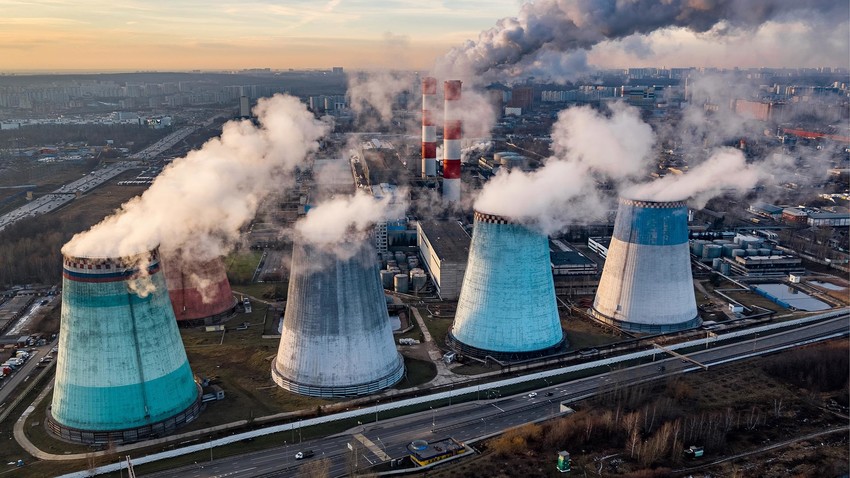
Russia has contributed 6.9% of the world’s carbon dioxide (CO2) emissions since 1850, according to a new analysis by experts at the Carbon Brief climate analytics website.
If that doesn’t seem like a lot, data from the Union of Concerned Scientists puts things into better perspective: Russia is fourth in the world for annual carbon emissions and, if overall emissions since the pre-Industrial period are taken into account, Russia moves to third place, behind the U.S. and China.
Luckily, the country is beginning to wake up to the realities of climate change. In his video address to the G20 summit in Rome, President Putin claimed that Russia is cutting its greenhouse gas emissions faster than the G7 group of nations.
However, cautious optimism is advised, because the country plans to rely on its forests and swamps to absorb enough greenhouse gases to meet its climate goals, while continuing to increase its carbon emissions up until 2050, the Kommersant business daily reported, citing the Economic Development Ministry’s draft strategy.
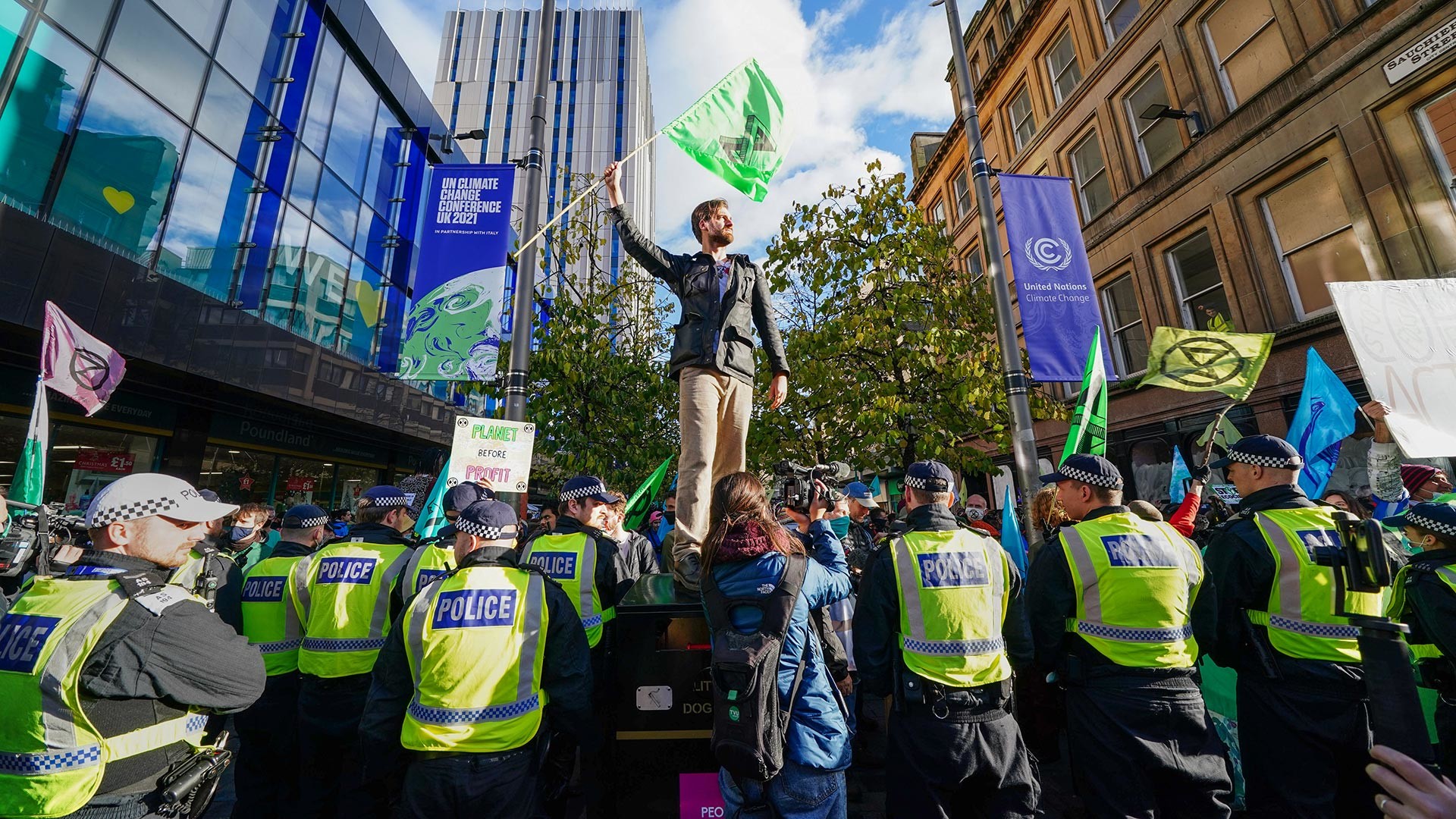
Police and demonstrators at an Extinction Rebellion protest on Buchanan Street, during the Cop26 summit in Glasgow.
Jane Barlow/PA Images/Getty ImagesThe Russian delegation is headed by Deputy Prime Minister Alexei Overchuk. He is joined by:
President Putin will speak at the summit via video link.
By its nature, the summit in Glasgow is like the Paris Agreement – it’s a financial agreement, it’s about money, not about emissions, according to Alexey Kokorin, PHd, Head of the climate and energy program at WWF Russia.
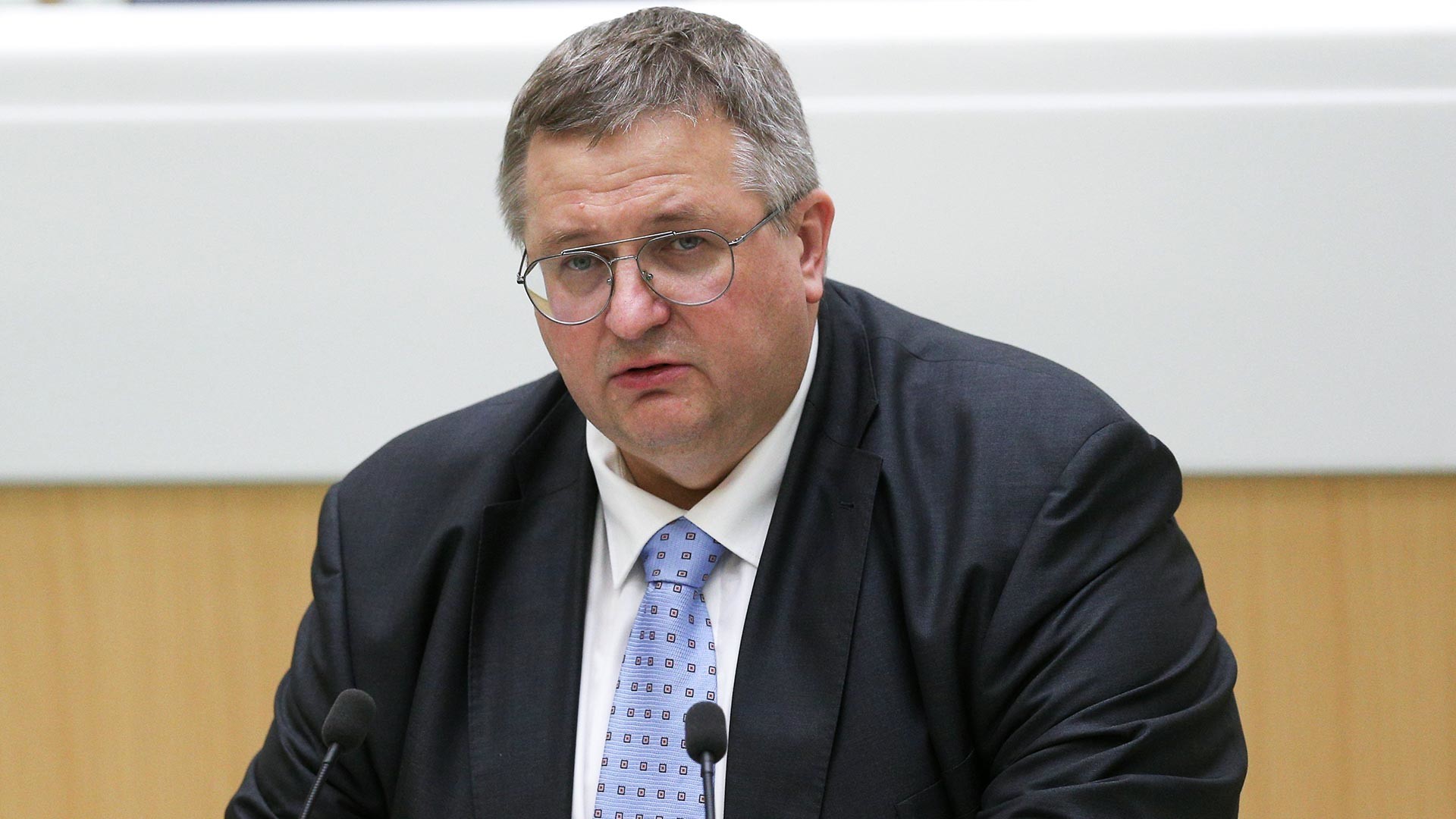
Alexei Overchuk.
Press Service of the Federation Council of the Russian Federation“The results of such summits is aimed at securing aid for low-income and vulnerable countries, so we have two groups of countries: about 50 developed countries that are obliged to provide aid and about 100-120 receivers of aid. Finally, there’s a very small group of countries that don’t receive aid and could provide smalls sums of aid on a voluntary basis. Russia is in that third group. So, we must understand that the main aims and results of the summit are not for Russia, there are no economic benefits to be gained. We take part in these meetings to show our solidarity, progressiveness, etc. Russia participates in putting together technical documents for international projects, because some of these projects could take place on our country’s territory, too. But overall, this summit is not for Russia,” Kokorin adds.
For example, one of COP26’s first major deals saw more than 100 world leaders promising to end and reverse deforestation by 2030; the pledge includes almost $19.2 billion of public and private funds. But these funds will be allocated for tropical rainforests, so, for Russia, this pledge is simply “something pleasant, because saving rainforests is a good thing”, according to Kokorin.
The other main questions at the conference will focus on what’s been done since 2015, when the Paris Climate Agreement was signed and whether the world has managed to prevent disaster?
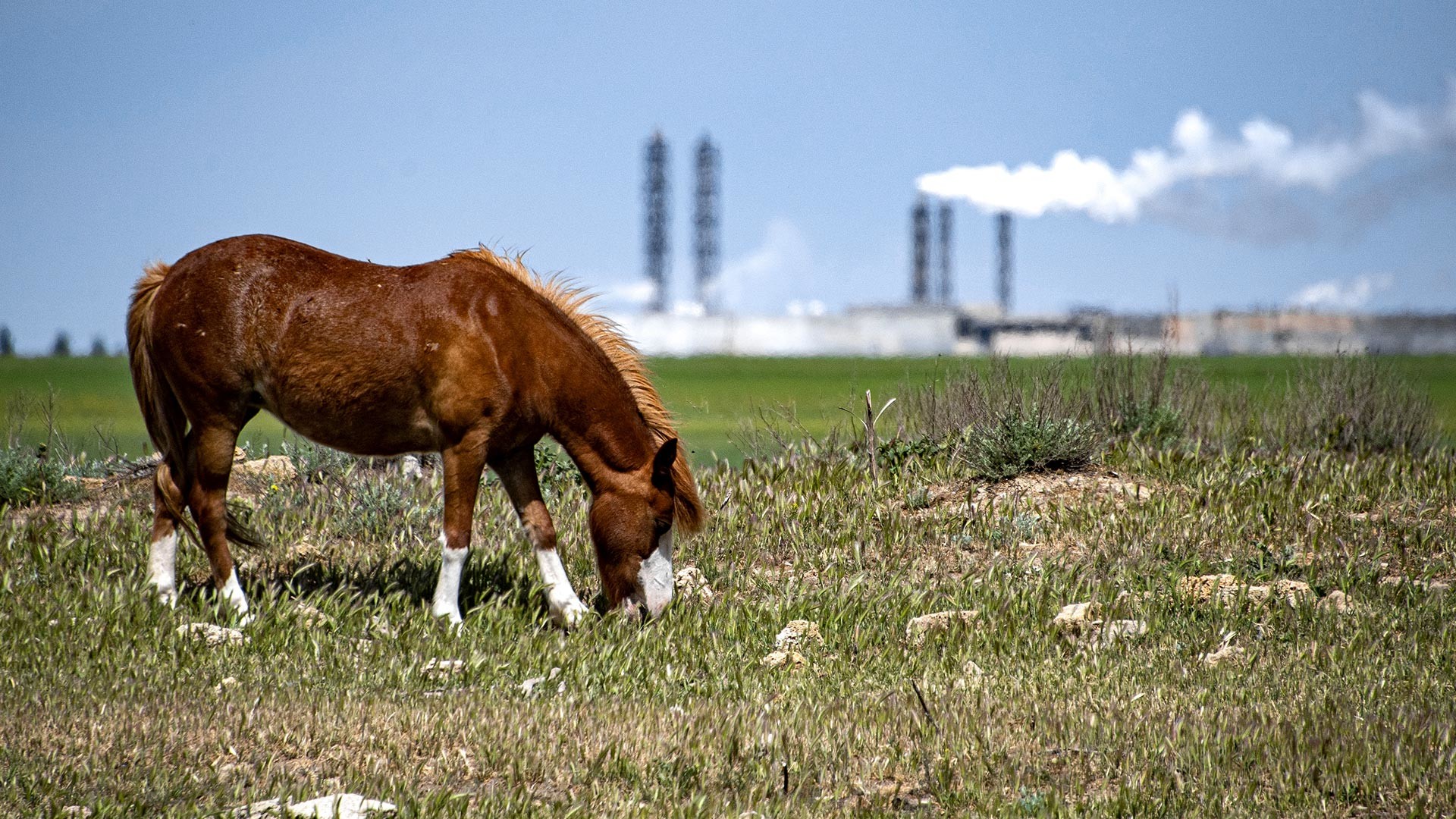
“We’ve got the answer to this already and UN Secretary-General António Guterres and Greta Thunberg say that very little has been done and we are now at the point of no return,” says Maxim Kanischev, Director of ANSELM, a scientific research project focusing on improving energy efficiency and lowering emissions.
Russia has yet to present an updated ambitious strategy to fight climate change, as was required ahead of the COP26 summit. However, based on the statements of members of the Russian delegation and several energy and climate change experts, some topics are at the top of Russia’s agenda this year. Russia will use this opportunity at COP26 to promote its energy resources and energy initiatives as “green”.
According to Kanischev, Russia has its own national priorities that shape its agenda at this year’s Conference of Parties, the first one being the recognition of nuclear and hydro energy as “green” energy. Russia is a leader in the construction of nuclear power plants, so the recognition and acceptance of low-carbon nuclear energy will give the country a carte blanche for the construction of nuclear power plants all around the world and this is an opportunity to significantly replenish budget revenues for many years to come.
The second important topic is Russia’s willingness to take into account sequestration projects within the framework of cross-border carbon regulation and, in general, to create a single system of trading in carbon units – if not on a global scale, then at least in Europe. Kozlov told Reuters that, in Glasgow, the delegation will seek full accounting of the absorption capacity of Russian forests (1.2 billion tons per year, half of which is lost in fires and logging).
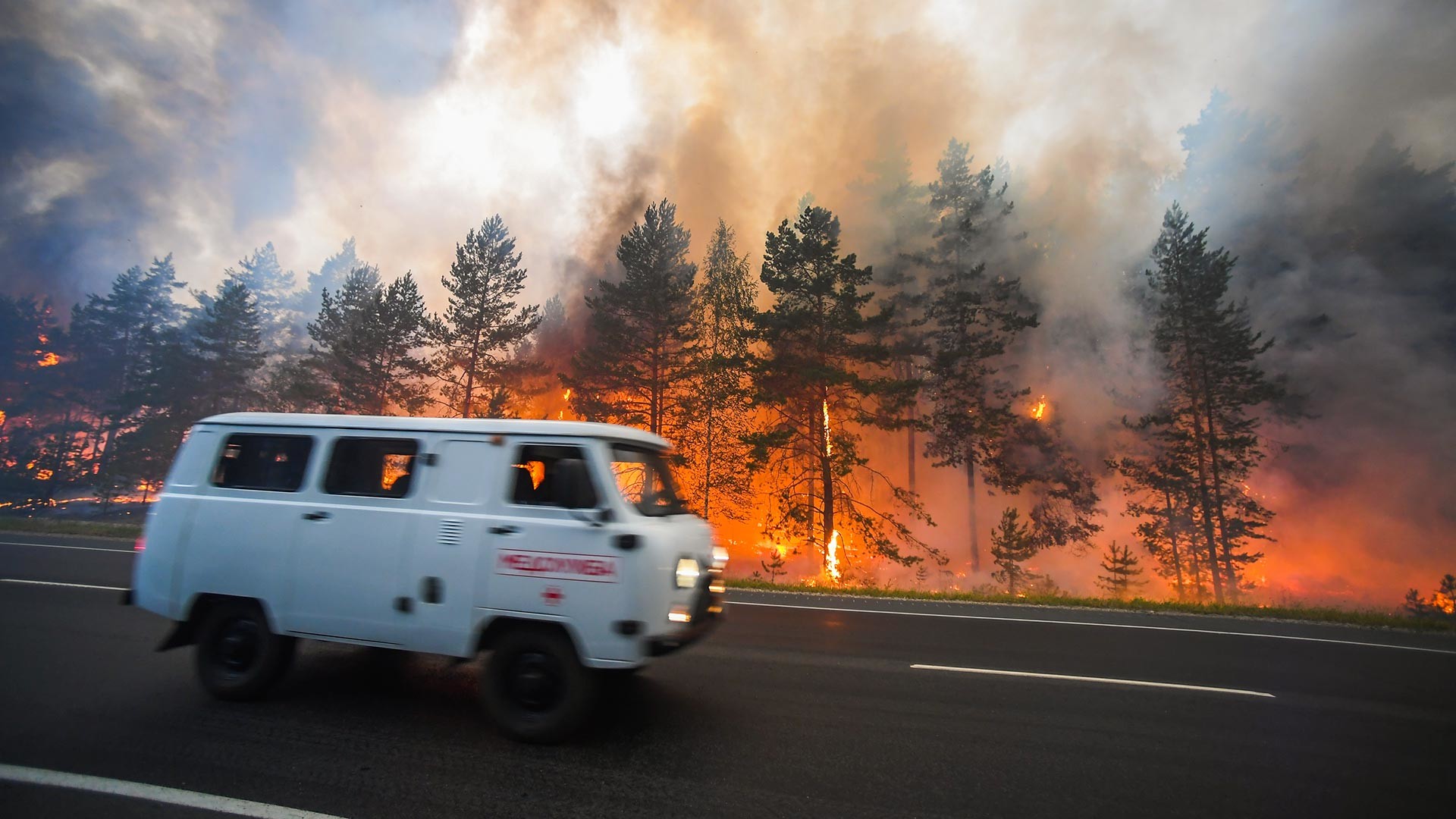
“There may be problems with this initiative,” Kanischev explains. “The Europeans themselves have not yet figured out the absorbing capacity of forests and how to account for it and they are not ready to negotiate with us [Russia] and reduce potential payments to their budgets within the framework of the cross-border carbon regulation.”
The other major Russian ambition at COP26 is the lifting of sanctions. Kanischev believes discussions about stopping and reversing climate change may give Russia a trump card when defending the position that “green” projects should be exempt from sanctions and have access to green finance and technology. Prior to setting off for Glasgow, Ruslann Edelgeriev did not rule out that he would raise the issue of lifting sanctions from “green” projects.
“After all, in the face of disaster, it is easier to give Russian companies technologies that will reduce their impact on nature and provide them with cheap money that will allow these projects to be implemented – essentially a win-win-win,” says Kanischev.
However, Kokorin is skeptical that this will happen. If Russia improves its image thanks to the conference, it could somehow impact the lifting of sanctions, but it’s something so indirect and improbable that it’s unlikely to happen. That said, the expert believes that “the Russian delegation does have the stated aim of making as good of an impression as possible on other countries to make it easier for our friends to insist on lifting sanctions. For example, Italy insists on lifting sanctions, so now Italy can say ‘look how much greener Russia is now’.”
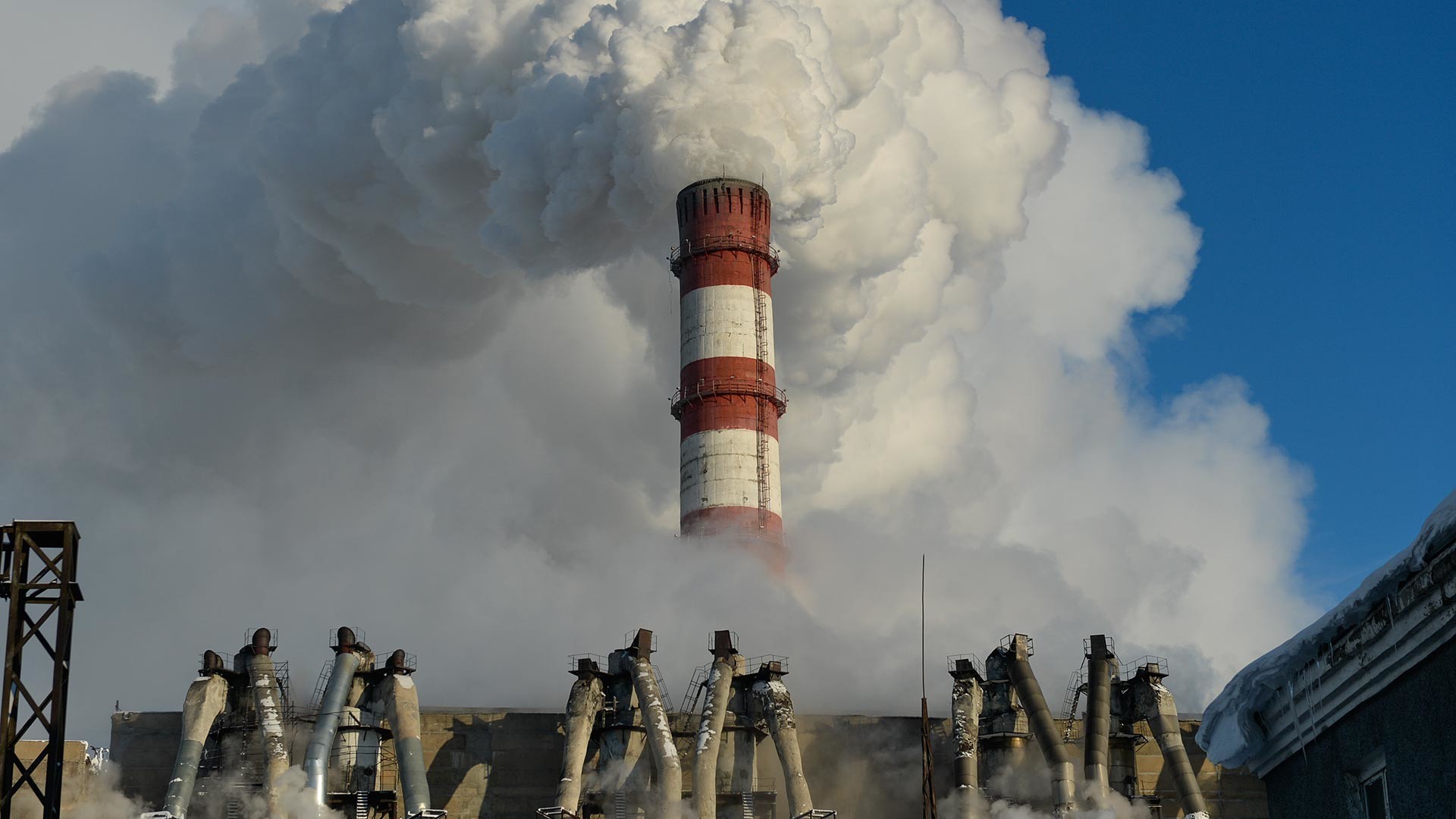
While industry, transport and agriculture are the most talked about “culprits” when it comes to climate change, globally, the construction sector is responsible for some 40% of emissions; in Russia, 21% of the share of total energy-related CO2 emissions originated from the construction sector.
For this reason, buildings and the built environment are getting high up on the environmental agenda, alongside renewable energy and deforestation. In this edition of the Conference of Parties, the last day is the Cities, Regions and Built Environment Day, with a ‘Build Better Now’ virtual pavilion on exhibit throughout the summit.
As of January 2019, there were 21,432,000 residential buildings in Russia and of these 17,213,000 were put into operation before 1995, without taking into account the current regulatory requirements for energy saving in buildings, says Konstantin Borisov, leading researcher at the Center for Energy Efficiency XX1 Century (CENEF).
“The buildings that were made operational before the establishment of current regulatory requirements for energy saving are the main reasons for the high consumption of fuel and energy resources and greenhouse gas emissions,” Borisov adds.
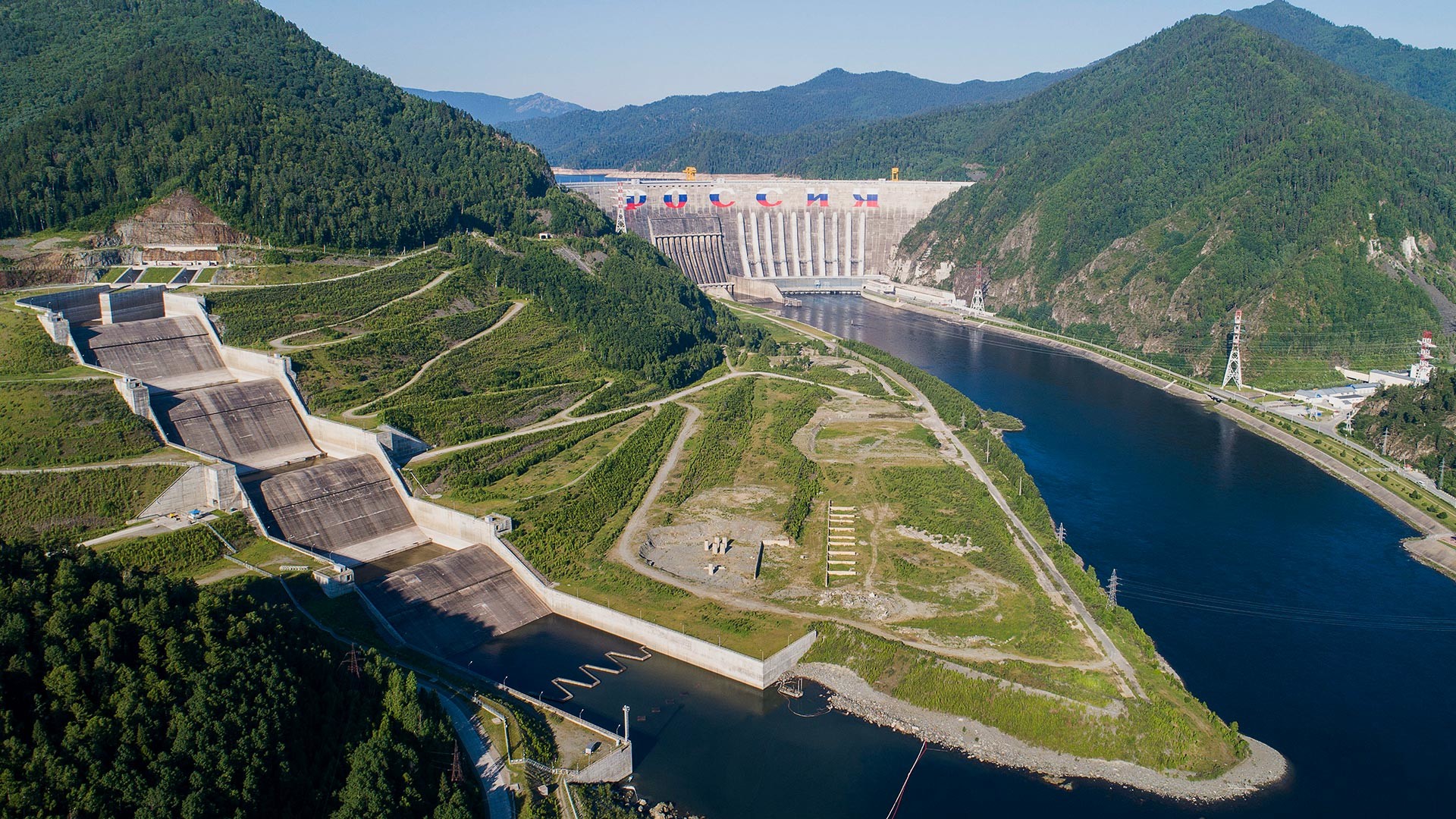
According to expert estimates, between 2018-2050 greenhouse gas emissions from buildings area can be reduced by 24% by 2030 and by 33% by 2050 (with 2018 levels as the baseline). Borisov notes that progress can already be seen, because figures for the period 2000-2018 indicate some improvement when it comes to consumption of fuel and energy and energy-related GHG emissions.
Such significant potential for reducing GHG emissions in the buildings and construction sector in Russia can provide a sizable contribution to the fight against climate change. Despite all the research pointing to the need to address this polluting and energy inefficient sector, it does not appear to be on the agenda of Russia at COP26.
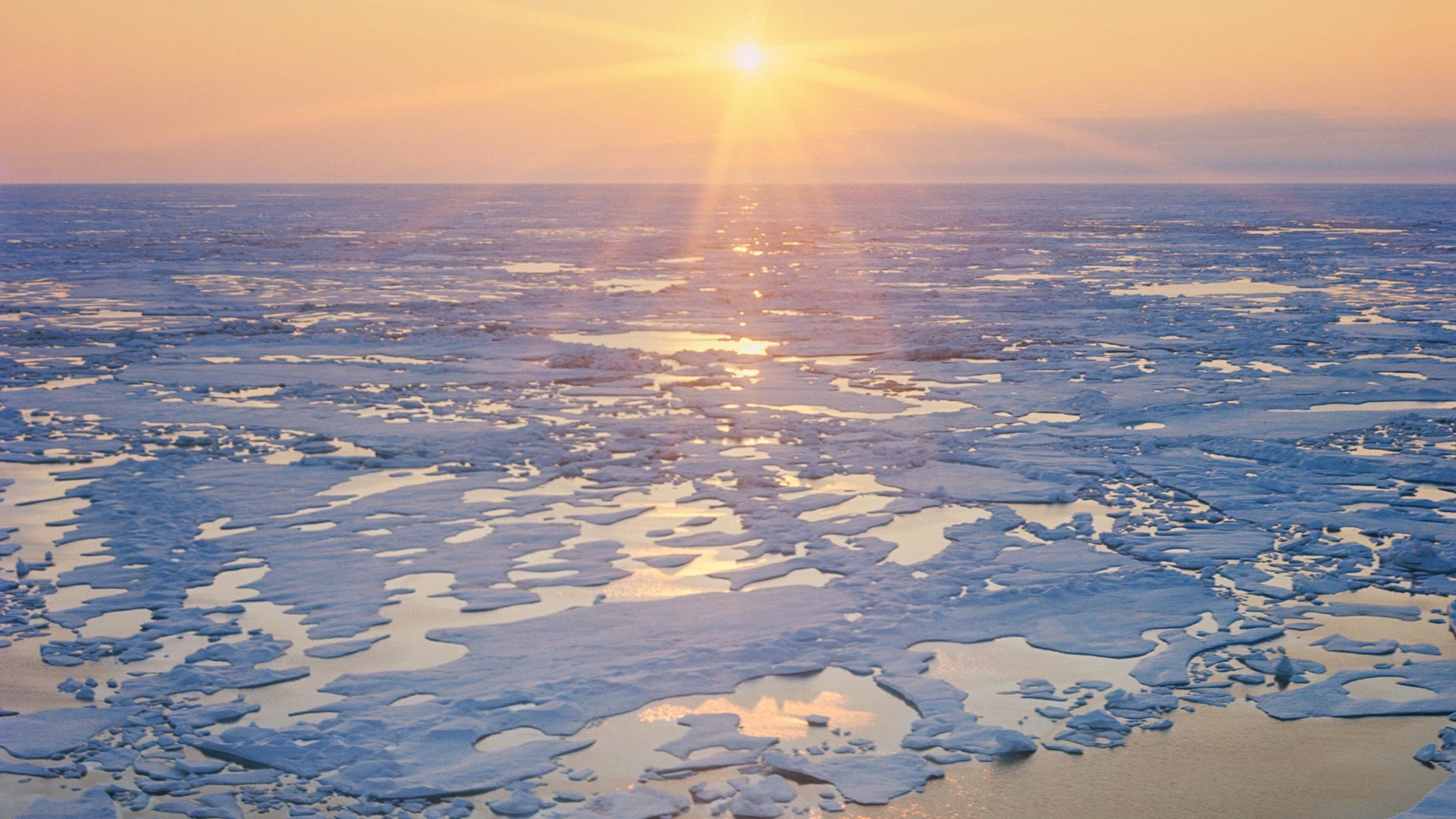
Russia is heating 2.5 times faster than the rest of the planet and its Arctic regions are warming especially fast, President Putin said in his video address to the G20 summit. In the past decade alone, he added, the average annual temperature in Russia has risen by about 0.5 degrees Celsius — and as the climate crisis intensifies, Russia is facing multiple threats including desertification, soil erosion and permafrost melt. Southern and eastern Russia are especially vulnerable to such threats.
The Ministry of Natural Resources lists possible consequences of climate change and the list is long: “The buildings, roads and other infrastructure will deteriorate faster because of the temperature and humidity deformations… More intense rainfall makes river swells and mudflow torrents more likely, which will lead to flooding and destruction of the coastal infrastructure.”
Additionally, Russia loses around 4-6% of its GDP annually, due to environmental disasters.
If using any of Russia Beyond's content, partly or in full, always provide an active hyperlink to the original material.
Subscribe
to our newsletter!
Get the week's best stories straight to your inbox